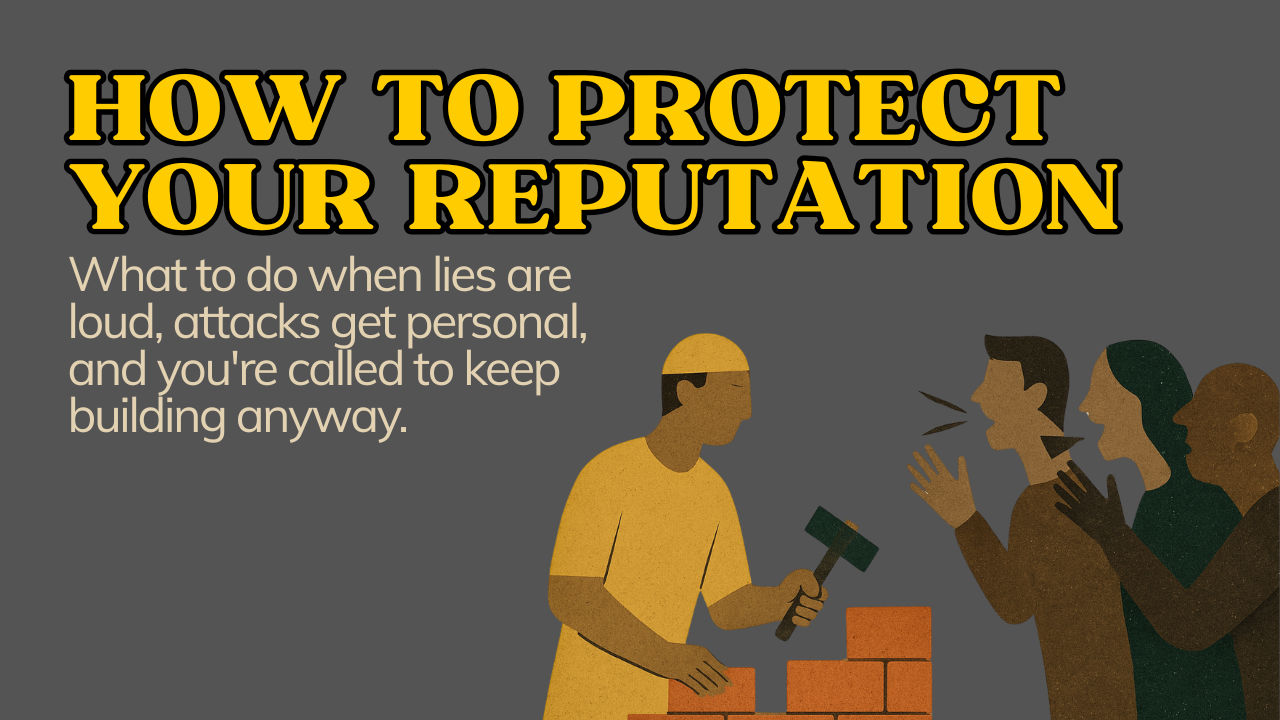How to protect your reputation when you're under spiritual, personal, or public attack—drawing wisdom from Nehemiah 6. When you're building something meaningful, resistance is inevitable. Rather than reacting to gossip, slander, or false accusations, the biblical approach is to stay grounded in integrity, avoid petty arguments, trust God for vindication, and keep your hands on the work. With a bold, minimalist tone inspired by Seth Godin, this piece challenges readers to remain faithful to their calling in the face of character assassination and distraction. The higher you build, the louder it gets—but your persistence is your protection.
Influence Without Control
When the People Cry Out
Revival Begins at Home
In Nehemiah 3, as the walls of Jerusalem were being rebuilt, the workers weren’t assigned random sections of the city. They built opposite their own homes.
Their own neighborhoods.
Their own streets.
Their own front doors.
Why?
Because before you build anything significant, before you restore what’s broken in the world, you have to secure what’s happening in your own home.
Nehemiah’s people understood something we often forget: a city isn’t strong if its families are weak.
Altars Before Walls
If you walked into Home Depot today, you’d expect to see contractors, electricians, weekend DIYers. You wouldn’t expect to see a high priest in the tool aisle, picking out lumber, asking about the best fasteners, buying a tool belt.
But in the book of Nehemiah, that’s exactly what happens.
When the city was in ruins, when the walls were crumbled, when the people were vulnerable—the first person to step up and rebuild wasn’t a military leader, a politician, or a businessman.
It was Eliashib, the high priest.
The "Just Declare It" Myth
If words alone could change the world, Nehemiah could have stood at the edge of Jerusalem, stretched out his hands, and declared the walls rebuilt.
But that’s not what he did.
Instead, in Nehemiah 2, he rode through the city at night, inspecting the damage for himself. He didn’t just listen to reports. He didn’t assume he already knew what was wrong. He put boots on the ground.
Because you will never transform a city you don’t take a step in.
Delayed, Not Denied: The Purpose Behind God’s Timing
We inhabit a world obsessed with immediacy. Everything—our careers, relationships, even our spirituality—demands instant gratification. If we’re not moving, we assume we’re stagnating. But this is a false presupposition, an illusion constructed by an impatient culture. The truth is that God does not adhere to human timelines. He is not rushed. He is not pressured. And, as hard as it may be to accept, He is never late.
Nehemiah understood this. He had a vision—a burden, a calling. He saw the broken walls of Jerusalem and longed to rebuild. Yet, for months, he remained still. He waited. He prayed. He resisted the urge to act prematurely. And because of that, when the moment of opportunity came, he was ready.






